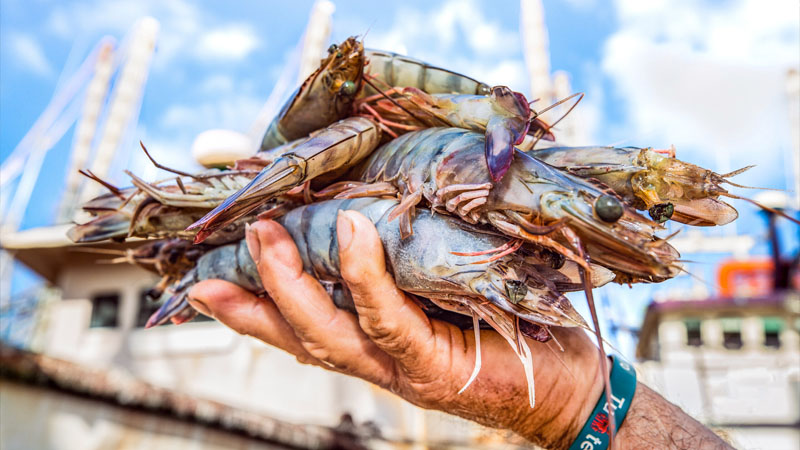Exclusive content

In Mexico, efforts to curb illegal shrimp imports have shown promising results, particularly in stemming the influx of shrimp from Peru. Carlos Urías Espinoza, President of the Confederation of Aquaculture Organizations of the State of Sinaloa, has expressed satisfaction with the recent measures taken by customs authorities, which have effectively closed the door on illegal shipments from Peru.
Curtailing Peruvian Imports: A Step Forward
Carlos Urías Espinoza highlighted the positive outcomes resulting from the suspension of shrimp imports from Peru due to health concerns. This decision, he noted, was crucial in curbing the unregulated flow of shrimp into Mexico, which had been undercutting local prices and creating unfair competition for domestic producers.
Despite the progress with Peru, challenges persist with shipments from Ecuador. Urías Espinoza acknowledged that these continue to pose a concern, emphasizing the need for sustained efforts and vigilance to address these remaining issues.
Commitments and Collaborative Efforts
In recent meetings with Senasica (National Health Service for Food Safety and Quality) and Sader (Ministry of Agriculture and Rural Development), commitments were made to strengthen enforcement measures against illegal shrimp imports. Urías Espinoza mentioned that they are awaiting a comprehensive report on registered imports to further guide their actions.
The actions taken thus far have had a noticeable impact on market dynamics. Urías Espinoza pointed out that the perceived decrease in smuggling activities has helped stabilize prices for locally produced shrimp. He stressed the importance of fair competition and urged Sader to review cost structures to support domestic producers.
Economic Outlook and Future Prospects
Urías Espinoza also highlighted the favorable exchange rate, which has bolstered the competitiveness of Mexican shrimp in international markets. With a more secure pricing environment domestically, producers are optimistic about their ability to both import necessary resources and expand export opportunities.
Looking ahead, Urías Espinoza emphasized the importance of continued collaboration between industry stakeholders and government agencies to sustain these positive developments. By maintaining strict oversight and implementing effective measures, the shrimp industry in Mexico aims to foster a stable and prosperous environment for all stakeholders.